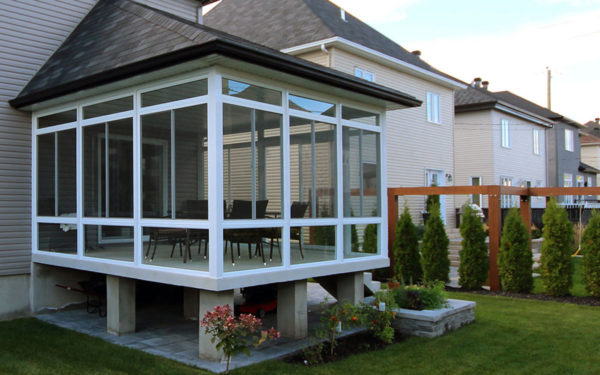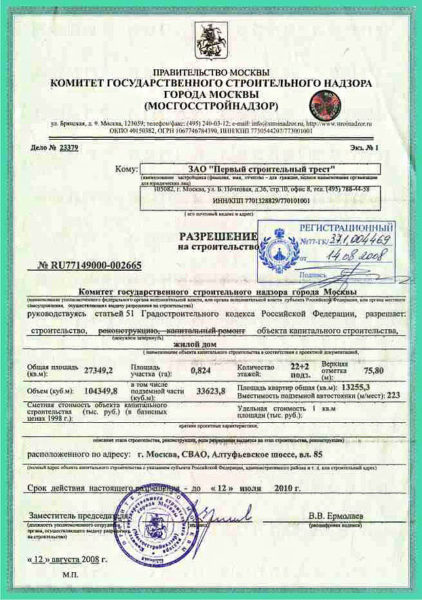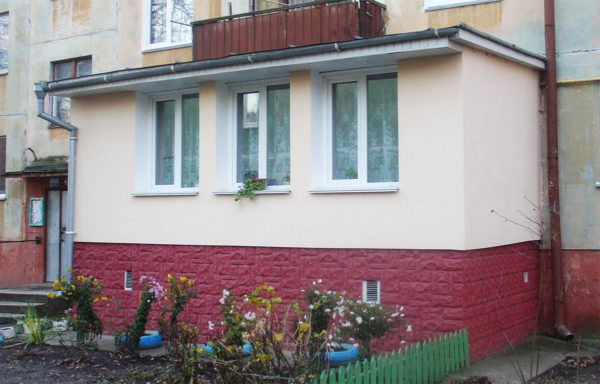How to start the registration of the extension: the necessary documents and procedure
Private homeowners often add to the main building over time various annexes... The reasons can be different - from hiding architectural flaws to increasing living space. However, even with ownership of the house, the law restricts owners to unauthorized reconstruction. This article will tell readers how to arrange an extension to a private house, what documents need to be collected, how much it costs. We will also touch on the difficulties that homeowners may face when obtaining a building permit.
The content of the article
Building permit
In order to attach an utility or residential building to a private house, it is necessary, according to the town planning code, to issue a building permit with the State Architectural and Construction Control Inspectorate (hereinafter GASK).
From the official definition in the town planning code of the Russian Federation, it follows that an extension is an additional part of the building secondary to the main structure, not included in the initial design, and having one or more common walls with the main structure. All buildings are divided into capital and lightweight objects. For a veranda, porch, terrace and other non-capital outbuildings, a building permit is not required.
Capital buildings and structures imply a strong connection with the land and, unlike non-capital buildings, are located on a solid foundation. For the construction of capital buildings, you need to issue a permit and approve the project.
If a capital extension is built without permission, then there will be difficulties with legalization, and, consequently, obtaining ownership of the structure. At best, the unauthorized developer will be fined or obliged to demolish the extension.
How and where to get a building permit can be found on the Internet by specifying the name of the subject of the Russian Federation in a search engine, or in local government bodies.
Documents for building permission
To obtain a permit for the construction of an extension to a house, you will need to present the following documents:
- passport and tax identification number of the applicant;
- documentation confirming the applicant's ownership of the house and land;
- written consent of other home owners (if any);
- cadastral passport;
- permission of the fire service, utilities and architectural bureau;
- house technical plan;
- finished project for the reconstruction of the main building;
- receipt of payment of state duty;
- consent of neighbors for construction (if necessary).
Attention!
The last point is also important for obtaining a building permit. If the neighbors do not agree with the construction of an extension that affects their interests, for example, shading a neighboring plot, you will not be given permission.
A permit may be refused if underground utilities are laid next to the household (at a distance of closer than 2.5 meters), the construction of an extension affects the supporting structures of the house and violates the integrity of the object, as well as in the case of using low-quality building materials. To avoid inaccuracies in the technical documentation, which may lead to the refusal of a building permit, it is better that these documents are drawn up by specialists.
A month after applying to GASK with an application for a construction permit, the applicant receives a final answer.If the owner of the house does not agree with the verdict, he has the right to appeal the decision of the architectural and construction inspectorate in court. After agreeing on all the nuances and obtaining permission, you can start building the extension.
How to legalize an unauthorized extension to a house
Often, owners of private houses willfully build capital outbuildings without a permit. Homes with undisturbed extensions cannot be sold, leased, or inherited until they are legalized.
An annex erected in the wrong place cannot be issued, and in accordance with the law, it is subject to demolition on a voluntary or compulsory basis. If during the construction of the extension the requirements of SNiP were not violated, even though it was built without permits, it can be legalized in court.
To legitimize it in court, the owner needs to conduct a technical examination and inventory of the structure, which will cost the owner a considerable amount, and also prove that the building does not infringe on the rights of neighbors and does not violate existing building standards.
As a rule, with a positive expert assessment, the presence of documents for the ownership of the house and the land plot, as well as the conclusion that the extension does not affect the interests of third parties, the court allows the registration of unauthorized construction. With the decision of the court, you need to contact GASK with a statement about the need to amend the Unified State Register of Real Estate (USRN).
How much does it cost to issue
The cost of registration of an extension in different regions of the country is different, and depends on the location and footage of the building, as well as the complexity of the project. The cost of legalization includes the following expenses:
- the cost of preparing a technical plan;
- payment for construction expertise;
- the cost of making changes to the inventory;
- state registration fee.
The size of the state duty depends on the price of the outbuilding, which includes the cost of work and building materials. The procedure is not cheap and can range from several thousand rubles to tens of thousands.
The cheapest option to start the registration is by contacting the municipal construction department - you will be provided with information on the necessary actions and payments.
Another option for obtaining a building permit, registration through the "Gosuslug" portal. Where will be indicated what documents are required and the price.
An important fact!
The costs of legalizing an unauthorized extension are much higher than legal registration. Therefore, it is recommended to obtain a building permit immediately.
How to issue an extension to an apartment building
Most of the urban population of our country lives in apartments in multi-storey buildings. The owners of apartments located on the first floors of such houses expand the living space by adding a veranda or an additional balcony to the outer main walls of the building. Therefore, at the end of the article, it will be useful to tell you how to get permission and arrange in this case.
The process of obtaining a building permit and further registration of an annex to an apartment building is not much different from a similar registration in the private sector. True, in this case, you will have to coordinate the construction with all residents of the house and obtain permission from the owner of the house.
The necessary documents are submitted to the architectural department of the municipality, where the application is considered and a decision is made. The reason for the refusal of permission to build an extension may be the fact that the apartment building is an architectural monument. To pass a positive verdict, it is better for the apartment owner to privatize the plot of land on which the extension is planned.
Conclusion
Summing up the above, we note that the design of the extension is not a very complicated and troublesome process, which is best done in compliance with all the formalities, which will subsequently save the budget and time.














